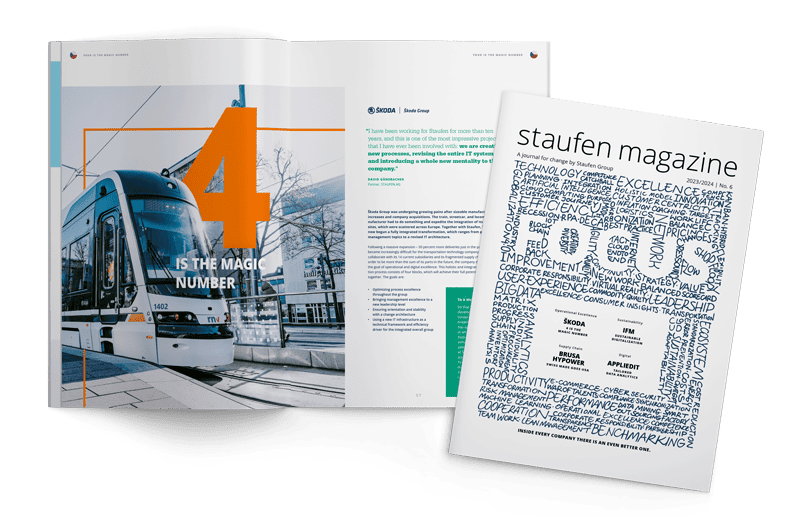
Since its founding in 1931, guided by its unchanging mission “to serve society with superior quality,” the Bridgestone Group has been expanding and evolving its business to meet the changing needs of society and continue supporting people’s mobility and lifestyle. Quality has always been at the core of Bridgestone’s business, as end users’ safety depends on it, not only on the streets, but also at airports.
Bridgestone Latin America North (BS-LAN) manufactures and markets a wide range of Bridgestone and Firestone tires, among other associated brands, to meet the needs of various customers: Consumers, original equipment manufacturers, transporters, and companies in the agricultural sector. It also has operations focused on the retreading of tires for trucks and buses, in accordance with its promise to provide social and customer value as a sustainable solutions company.
Shop Floor Management, a tool for achieving operational excellence
The implementation of Shop Floor Management (SFM) is one of the strategic tools that Bridgestone has implemented at a regional level, seeking continuous improvement in its manufacturing processes and motivating its team to take actions that make the operation more efficient.
Specifically for Bridgestone Costa Rica, SFM seeks to develop high-performance multidisciplinary teams, accompanied by assertive leadership and communication at all levels of the organization, to overcome the challenges of its operation and lay the foundation for achieving the company’s strategic Key Process Input Variables (KPIVs).

We had a pleasant experience with the implementation of SFM in our plant, we strengthened our daily management systems with the guidance of Staufen consultants, who were always willing to provide the best tools to ensure that changes generate value for our processes.
Pablo Jimenez Aldrette
Plant Manager, Bridgestone Corporation
What were the main challenges when implementing Shop Floor Management?
Pablo Jiménez Aldrette: When implementing SFM, as in any change process, we perceived uncertainty and resistance to this new form of management. We were faced with questions such as “does it work?” “Is it possible for our process?” “Why should this be done in the plant?” “Why do it every day?” and others. To manage these questions and the challenges that arose during implementation, it was essential to maintain transparent and empathetic communication, and to adapt the system to our processes by explaining it clearly.

Pablo Jimenez Aldrette
Plant Manager
Bridgestone Corporation

Pablo Jimenez Aldrette
Plant ManagerBridgestone Corporation
Pablo Jiménez ist gebürtiger Mexikaner und hat einen Abschluss in Industrial Engineering der Universidad Autónoma de Guadalajara sowie ein Diplom in Qualität und Produktivität der Universidad La Salle de Cuernavaca. Er blickt auf mehr als 30 Jahre Erfahrung im Unternehmen zurück. Seine Laufbahn bei Bridgestone begann er 1992 als Industrial Engineer in der Abteilung Reifenmontage im Werk Cuernavaca in Mexiko. Seitdem bekleidete er verschiedene Positionen mit zunehmender Verantwortung. Im Jahr 2002 wurde er zum Industrial Engineering Manager ernannt, 2006 zum Production Manager. 2009 folgte die Beförderung zum Manufacturing Director für Bridgestone Mexiko. Rund 10 Jahre später zog er nach Costa Rica, um als Manufacturing Director für Bridgestone Costa Rica die Betriebsleitung des Werks in Heredia zu übernehmen. Unter seiner Leitung wurden die Produktionskapazitäten des Werks weiterentwickelt mit dem Ziel, die Inlands- und Exportmärkte weiterhin mit qualitativ und technologisch hochwertigen, leistungsstarken Reifen zu versorgen.
Read moreWhat are the three main benefits of implementing Shop Floor Management at Bridgestone?
- Communication.
At Bridgestone Costa Rica, we have managed to transform communication in order to inspire our leaders and employees to interact assertively. Our team likes to be involved, and this implementation has helped us reinforce the feeling of belonging and credibility by creating spaces in which information is shared openly and transparently. - Transparency of processes and performance monitoring.
Organization, effective monitoring, and delegation have been essential for working on improvement opportunities. This provides us with accurate information that allows us to act proactively to continue positioning Bridgestone as an industry leader. - Timely attention and response. Improvement opportunities must be addressed in the plant, quickly and efficiently.
SFM has allowed us to use daily and agile management to resolve the different situations that arise, and at the same time establish an escalation mechanism that allows us to involve the leadership team when employees cannot resolve issues directly on the shop floor.
SFM has become one of the tools we use to optimize our plant’s performance.
The company
Bridgestone Latin America North (BS-LAN) is a business unit that integrates the manufacturing and sales operations of the subsidiaries in Mexico, Costa Rica, Central America and the Caribbean, Colombia and Ecuador. It is a subsidiary of Bridgestone Americas, Inc. (BSAM) and Bridgestone Corporate Japan. The group also has regional offices in Europe and Asia Pacific.
2.679
Employees
9.372.281
tires produced annually
Request the English Magazine now as a digital or print version

You might also be interested in

“Don’t hide behind theory, but convince in practice”
The next generation of light commercial vehicles from Mercedes-Benz will also be produced in Düsseldorf. Michael Hellmann, site and production manager of the plant there, explains in an interview why Düsseldorf was awarded the contract.
Read more
Made in Brazil
Randoncorp is a global leader in the sectors of semi-trailers, rail wagons, auto parts and services. Today, despite the cautious scenario in the automotive sector worldwide, the group is strongly investing in its Auto Parts Vertical.
Read more

